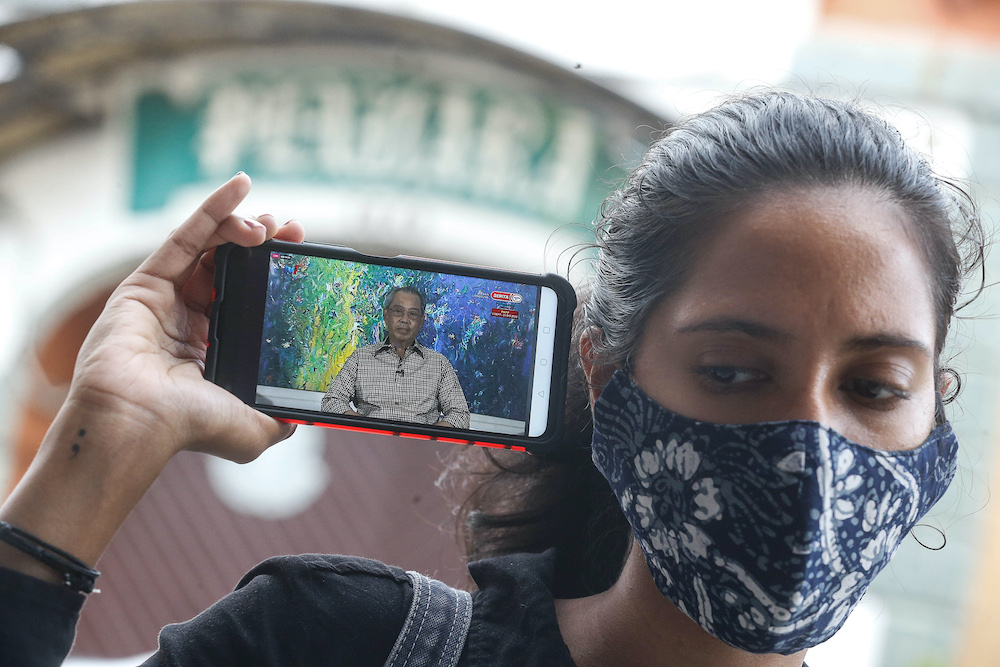KUALA LUMPUR, Oct 6 — Prime Minister Tan Sri Muhyiddin Yassin closed his special address on the Covid-19 pandemic today warning that authorities cannot spare the rod to curb the recent spike of the coronavirus cases.
Referring to himself by using the Malay word for “daddy”, “abah”, the prime minister “asked for forgiveness” from Malaysians for taking such a move.
“Sorry if this ‘abah’ has started using the cane!” he told the public.
Muhyiddin and his supporters have referred to him as “abah” since he took power, in a bid to cultivate a warm paternal personality with the public.
In a live telecast on social media, Muhyiddin said the country is not ready for another lockdown and the only way to make sure people adhere to the new norms is by sometimes cracking the whip.
He said the government will mobilise more frontliners to help by making sure the people adhere to the new SOPs as Malaysia continued to add record numbers of infections this past week.
“The government is looking to stop large gatherings and such, including weddings. We will also discuss with the Ministry of Health if we need new SOPs.
“The frontliners from the enforcement agencies will be mobilised again to ensure everyone adheres to these new norms. If there is anyone who is found breaking the rules they will be compounded.
This sharp rise in new Covid-19 cases to a record high of 691 today, mostly in Kedah and Sabah, have made Malaysians fear another partial lockdown which devastated the nation when it was first implemented in March.
On March 16, 125 new cases prompted the movement control order (MCO) where interstate movement was restricted and the public had to stay home except for essential activities.
Muhyiddin however allayed fears of the country reverting to the initial partial lockdown, saying the nation would not be able to handle another economic crisis.
“Until today we have not discussed doing a total lockdown. If we do it, it will have a huge impact on the nation.
“What we are actively doing is our targeted enhanced movement control order or TEMCO. We go in, identify the places that are dangerous or high risk and implement the TEMCO there.
“That way, other areas that are not affected can continue to operate under strict SOPs. I believe our health system is strong and we are more experienced now that before and we can handle the situation without having to close down many economic sectors,” he added.




















